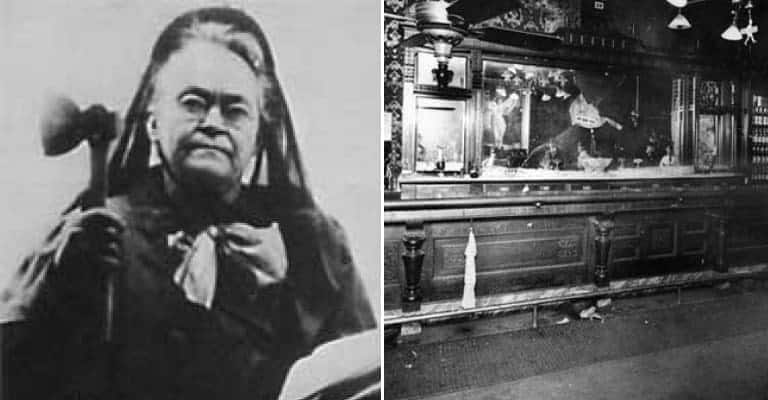Americans were drunks in the 19th century. During an era when water-borne illnesses were common and could kill a person within 24 hours, distilled spirts, wine, and hard cider were the drinks of choice. As industrialization began to overtake farming and artisan craftsmanship, people grew more and more fearful of change. To cope with rapid change, people turned to evangelical revivals. Throughout the young nation, tent revivals drew thousands of people. Some lasted just a few days while others lasted weeks. Pius women played important roles in organizing, managing, and participating in the revivals. Women were key to expanding the ideals of religious piety during the Second Great Awakening.
A key component of the revivals was abstaining from distilled spirits. Drinking caused men and women to neglect their families, turn to a life of crime and violence. By eliminating distilled sprits like rum, whiskey, and gin, debauchery, crime, and neglect would not compromise families and adversely impact society. In 1826 Boston, the American Temperance Society (ATS) met for the first time. By 1836, over 1 million people had joined ATS and formed local chapters. All members took an oath proclaiming the evils of distilled spirts and never to partake in them. For the next 100 years, the ATS worked toward the prohibition of making, selling, and consuming alcohol. One such advocate was a woman named Carrie Nation.

An Early Calling
Carry “Carrie” Amelia Moore was born in 1846 in Kentucky. There she lived on her father’s farm. Her father owned slaves and Carrie spent a lot of time with her “aunts” and their children. In her autobiography, Carry called her father “one of the noblest works of God.” By 1854 the Moores had moved to Cass County, Missouri. Life along the Kansas-Missouri border was extremely violent. Pro-slavery and anti-slavery factions morphed into pro-Confederate and pro-Union warfare long before the Civil War began.
When the American Civil War finally broke out in 1861, Missouri had two governments with one loyal to the Union and one loyal to the Confederacy. Over 3 million people were forced from their homes, the Moores included. Fleeing the war, the family moved to Texas. A year later they returned to Missouri when Union forces occupied the state. Raids remained common and Carrie and a friend traveled to Independence, Missouri to care for the wounded. There she witnessed the horrors of humanity.
When Carrie was 21 she fell in love with a boarder on her father’s farm. Charles Gloyd was a former Union soldier, young physician, and an alcoholic. Perhaps Carrie overlooked the reliance that her soon-to-be husband had on hard liquor, after all male suitors were not in large supply after the war. Carrie loved Charles and abasing family wishes, she married him on November 21, 1867. On September 27, 1868, Carrie gave birth to a daughter. Six months later, Charles died due to extreme alcohol use. Carrie was heartbroken and forced to return to her father’s farm.

Carrie sold her husband’s medical books and equipment along with land her father had given her and moved with her newborn daughter and mother-in-law to Holden, Missouri. She enrolled in the state’s Normal School and became a teacher for several years. Life improved for Carry when she met David Nation. He was a reporter and 19 years older than her. They married in 1874 and in 1877 moved their blended family to Texas where David practiced law and Carry ran a hotel. Throughout her life, Carry Nation was a devoted and religious woman. While living in Texas she reportedly had visions and dreams of God speaking to her.
In 1889 David Nation became a preacher and moved his family to Medicine Lodge, Kansas. There, Carrie became known as Mother Nation for her charity and religious work. She was drawn to helping children and prisoners and had a reputation for being a very generous woman. In connection with her religious beliefs, Carrie believed that alcohol was the cause for the imprisonment of many, the abandonment of wives and children, and violent behavior. She organized a chapter of the Women’s Christina Temperance Union (WCTU) which was crucial in passing a Kansas law that made selling alcohol illegal.

